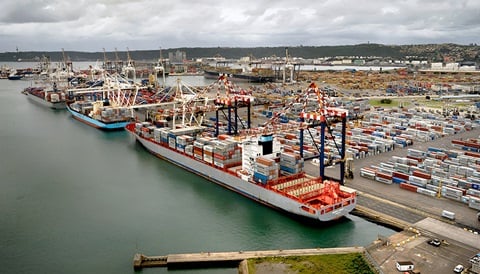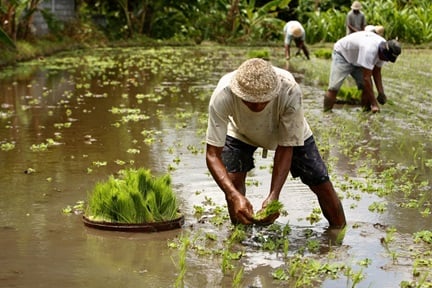Chinese demand for cocoa, fruits, and nuts to increase African agricultural exports
China has set a goal to increase agricultural imports from Africa to US$300bn in the next three years

A new report by the International Trade Centre, titled "Enhancing Africa's agricultural exports to China," reveals that several agricultural products in which Africa has a comparative advantage – including edible fruits and nuts, cocoa, coffee, tea and spices – offer promising export growth potential to China.
China's demand for imported agricultural products continues to grow. By 2030, it is estimated the country will have 400m households in the upper-middle class and above income segment, equivalent to the combined number of such households in Europe and the United States. This expanding consumer class presents a significant opportunity for African countries to increase exports to China.
Africa possesses a wealth of natural resources and cultivates unique products, such as cocoa, coffee, tropical fruits, and nuts. The relatively underdeveloped nature of African farming means pesticide use is still low, giving it an edge in environmentally friendly and sustainable production. Africa therefore has an advantage to cater to high-end consumption demand in China as consumers expand their buying and taste preferences.
In 2020, Africa's leading agricultural export to China was oil seeds, valued at US$1.2bn, followed by fruits and nuts at US$337m. Sales of food waste and animal fodder totalled US$214m, while cotton exports were US$207m. Wool and animal hair also represented a significant portion of Africa's outbound shipments, reaching US$199m.
The report highlights the potential for increased cocoa exports from Africa to China. In recent years, China's cocoa market has expanded by a compound annual growth rate of more than 20%. However, China's per capita cocoa consumption is still relatively low, at around 50 grams, below the global average and even lower than in many emerging markets. In 2001, China imported US$6.8m worth of cocoa products from Africa, but that figure ballooned to US$67.7m in 2020. Côte d'Ivoire, Ghana, Togo, and Nigeria are Africa's biggest cocoa exporters to the Asian giant. Despite this growth, exports from Africa to China remain small, accounting for only 0.6% of the continent's overall overseas cocoa shipments. Africa is now responsible for 5.7% of China's cocoa imports, which primarily comprise cocoa beans, cocoa paste, and cocoa powder.
Another category that presents an opportunity for greater sales in China is fruit and nuts. In 2020, China imported almost US$340m worth of fruits and nuts from Africa, up from US$0.43m in 2001. Despite this growth, Africa still only supplied 2.8% of the fruits and nuts imported by China. On a global scale, Africa is responsible for 8.1% of the world’s fruit and nut exports. South Africa leads the way in this regard, accounting for 2.9% of global exports, followed by Morocco at 1.2%, Egypt at 1.1%, and Côte d’Ivoire at 0.9%.
China has set a goal to increase agricultural imports from Africa to US$300bn in the next three years. In November 2021, President Xi Jinping announced the planned establishment of "green lanes" to facilitate the import of African agricultural products and expedite inspection and quarantine procedures.
Africa has nearly US$150bn of unrealised agricultural export potential to China, owing to several challenges and bottlenecks. These include the absence of bilateral trade arrangements, particularly with regard to inspections and quarantines. The current inspection and quarantine rules make it difficult for African agricultural products to enter China within a reasonable time frame.
Furthermore, Africa's farming sector needs to be strengthened in order to fully capitalise on the significant Chinese market. This will require improvements in drainage, irrigation, rural electricity and storage systems. The report also emphasises the need for improved access to quality agricultural inputs, without which African farmers will struggle to produce at the required scale.
References
‘Five consumer trends shaping the next decade of growth in China’, McKinsey & Company, 11 November 2021
‘Enhancing Africa's agricultural exports to China’, International Trade Centre, 25 November 2022







